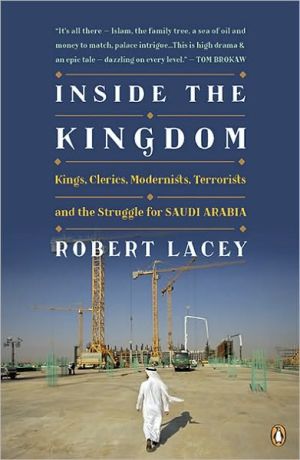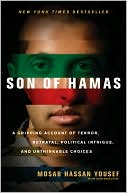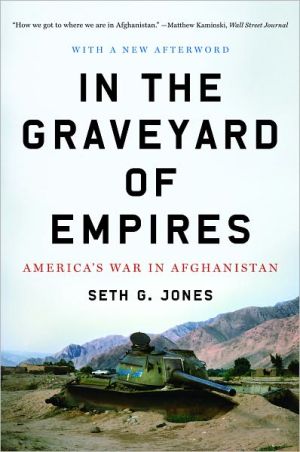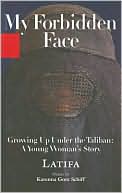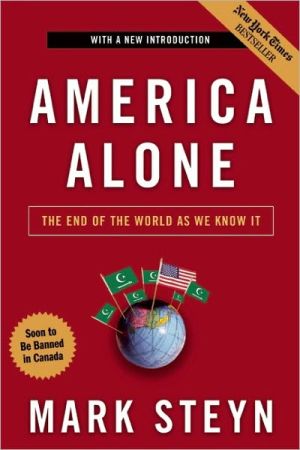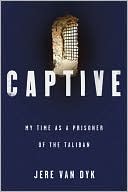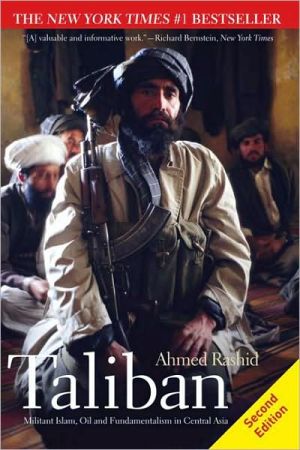Inside the Kingdom: Kings, Clerics, Modernists, Terrorists, and the Struggle for Saudi Arabia
"It's all here-Islam, the family tree, a sea of oil and money to match, palace intrigue...This is high drama and an epic tale."\ -Tom Brokaw\ Though Saudi Arabia sits on one of the richest oil deposits in the world, it also produced fifteen of the nineteen 9/11 hijackers. In this immensely important book, journalist Robert Lacey draws on years of access to every circle of Saudi society giving readers the fullest portrait yet of a land straddling the worlds of medievalism and modernity....
Search in google:
What happened in the Middle East's oil-rich powerhouse- while we weren't lookingSaudi Arabia is a country defined by paradox. It is a modern state driven by contemporary technology and possessed of vast oil deposits, yet its powerful religious establishment would have its customs and practices rolled back a thousand years to match those of the prophet Muhammad.With Inside the Kingdom, journalist and bestselling author Robert Lacey has given us one of the most penetrating and insightful looks at Saudi Arabia ever produced. While living for years among the nation's princes and paupers, its clerics and progressives, Lacey endeavored to find out how the consequences of the 1970s oil boom produced a society at war with itself. Filled with stories that trace a path through the Persian Gulf War and the events of 9/11 to the oilmarket convulsions of today, Inside the Kingdom gives us a modern history of the Saudis in their own words, revealing a people attempting to reconcile life under religious law with the demands of a rapidly changing world. Their struggle will have powerful reverberations around the globe, and this rich work provides a penetrating look at a country no one can afford to ignore. Publishers Weekly Lacey (The Kingdom) delves into the paradoxes in Saudi society—where women are forbidden to drive but are more likely to attend universities than men—and why this nation yielded most of the terrorist team on September 11, Osama bin Laden and one of the largest group of foreign fighters sent to Guantánamo from Afghanistan. Lacey's conversational tone and anecdotal approach to storytelling and analysis gives us a vivid portrait of personal and political life in Saudi Arabia's public and personal spheres, the traditions that govern everyday life, the country's journey from relative liberalism on the tide of extreme oil wealth in the 1980s to a resurgence of traditionalism. Lacey shows us a land where the governing dynasty gives rehabilitated Guantánamo returnees an $18,000 stipend toward their marriage dowry, and 15 young girls died in a schoolhouse fire in 2002 because they were not properly veiled, and religious police forbade them to escape and prevented firefighters from entering the burning building. Lacey's eye for sweeping trends and the telling detail combined with the depth, breadth and evenhandedness of his research makes for an indispensable guide. (Oct.)
Map: Saudi Arabia and Its NeighborsPreface: Welcome to the KingdomFamily Tree: Rulers of the KingdomNote on the Islamic CalendarPt. 1 Kingdom of God1 Angry Face 32 The Brothers 143 Siege 244 No Sunni, No Shia 375 Vox Populi, Vox Dei 466 Salafi Soccer 547 Jihad in Afghanistan 628 Special Relationship 689 Dawn Visitors 7810 Stars in the Heavens 8611 Into Exile 9712 The Dove and the East Wind 10513 Vacationing Jihadi 114Pt. 2 Kingdom at War14 Desert Storm 12715 Battle for Al-Khafji 14116 Awakening 14817 Stopping the Sins 15718 In from the Cold 16719 Change of Heart 17420 Enter the Crown Prince 18021 The Students 19322 Infinite Reach 20423 New Century 214Pt. 3 Al-Qaeda Comes Home24 Fifteen Flying Saudis 22525 Fire 23726 Al-Qaeda in the Arabian Peninsula 24427 Prodigal Sons 25328 King Abdullah 26429 Girls of Saudi 27430 Illegitimate Occupation 28431 End of the Affair 29232 Condition of the People 303Epilogue 316Time Line 333Glossary of Names and Arabic Terms 335Notes 343Suggested Reading 377Acknowledgments 381General Index 389House of Saud Index 401Photographic Sources 403
\ Publishers WeeklyLacey (The Kingdom) delves into the paradoxes in Saudi society—where women are forbidden to drive but are more likely to attend universities than men—and why this nation yielded most of the terrorist team on September 11, Osama bin Laden and one of the largest group of foreign fighters sent to Guantánamo from Afghanistan. Lacey's conversational tone and anecdotal approach to storytelling and analysis gives us a vivid portrait of personal and political life in Saudi Arabia's public and personal spheres, the traditions that govern everyday life, the country's journey from relative liberalism on the tide of extreme oil wealth in the 1980s to a resurgence of traditionalism. Lacey shows us a land where the governing dynasty gives rehabilitated Guantánamo returnees an $18,000 stipend toward their marriage dowry, and 15 young girls died in a schoolhouse fire in 2002 because they were not properly veiled, and religious police forbade them to escape and prevented firefighters from entering the burning building. Lacey's eye for sweeping trends and the telling detail combined with the depth, breadth and evenhandedness of his research makes for an indispensable guide. (Oct.)\ \ \ \ \ Kirkus ReviewsA lucid exploration of profound divisions in Saudi society, many of which are of immediate concern to the West. Dismissing an American editor's characterization of his subjects as a "bunch of camel jockeys," Arabia expert Lacey (Great Tales from English History, Volume 3, 2006, etc.) accords great respect to the House of Saud, which knitted three distinct nations into modern Saudi Arabia. Yet, the author speculates, without Saud's rise, "the horrors of 9/11 would never have been inflicted on the United States, since Osama Bin Laden's poisonous hostility to the west was a brew that only Saudi Arabia could have concocted." Lacey patiently explains the rise of Wahhabist orthodoxy and its puritanical view of the world, in which so slight an infraction as enjoying music would earn a Muslim a spot in the inferno. That orthodoxy, ultimately, underlies the jihadist aspirations of bin Laden and al-Qaeda, who want ensure that such infractions are properly punished on Earth. The Saudi royal family-of whom bin Laden is a distant cousin-does not go uncriticized by the Wahhabist mullahs. Provocatively, Lacey explores the Sunni-Shia split in Saudi society, noting that the despised Shia minority was quick to come to the nation's defense during the Gulf War, even as the Wahhabists decried the presence of American troops on Saudi soil and encouraged resistance. The author also describes the assassination of Shia saint Ali as "one of the earliest victims of Islamic terrorism"-a statement that should cause a stir in Riyadh. What should win him respect there, however, is his evenhanded treatment of Saudi efforts to introduce modernizing reforms and to curb homegrown terrorism in the wake of 9/11, includingthe rehabilitation of jihadists released from Guantanamo. Lacey concludes by noting that Saudi Arabia, once believed to be a steadfast ally of the West, has been forging links with new partners-especially China-that will change geopolitics in the years to come. A culturally sensitive portrayal of a troubled-and potentially troublesome-region.\ \ \ From the Publisher"This is high drama and an epic tale. Dazzling—-on every level." —-Tom Brokaw\ \
